French Programs
Sophie Oldfield
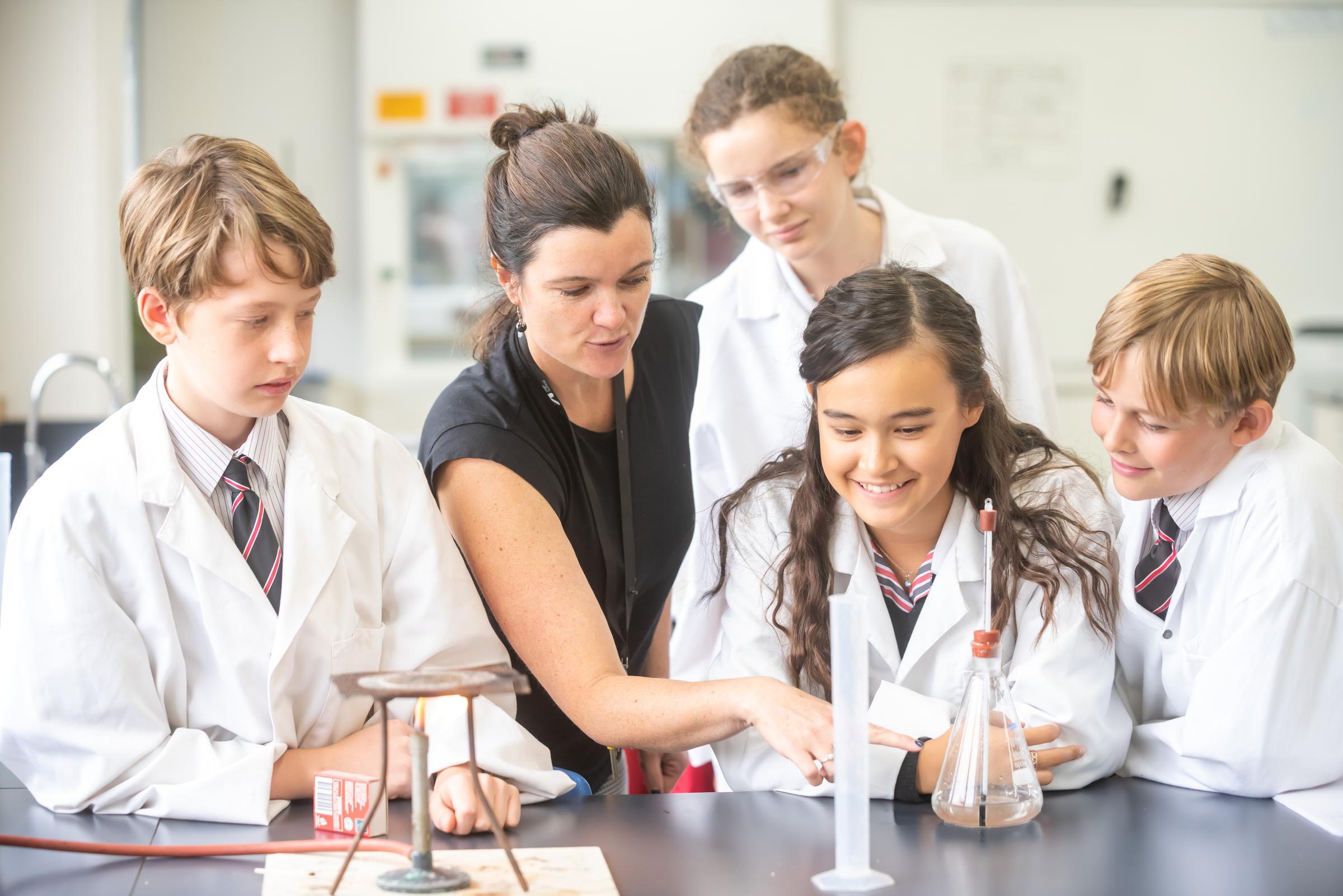
French Programs
Sophie Oldfield
What’s happening in our French classrooms?
Year 7 French students are preparing for their final writing CAT, where they will be asked to describe images using the vocabulary they have learned throughout the year. Bonne chance!
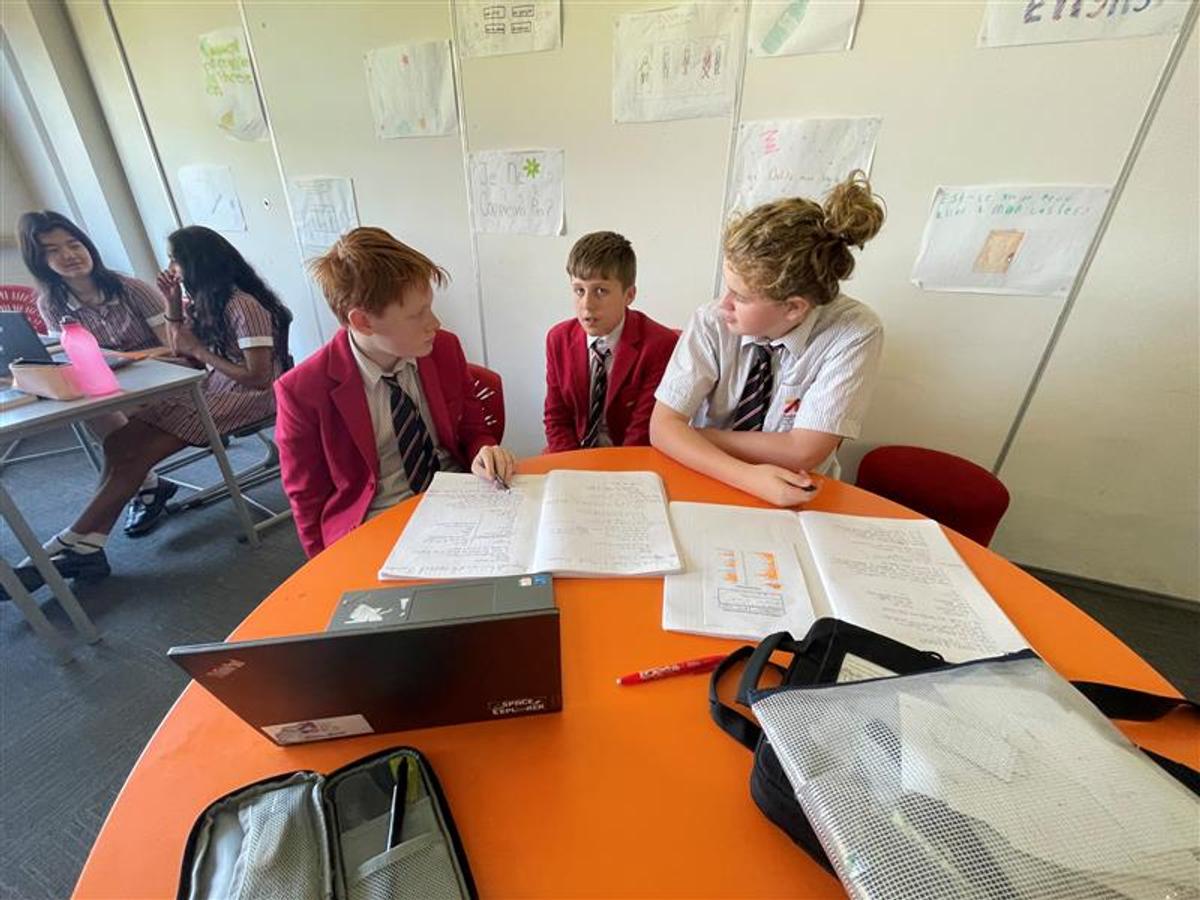

Our Year 7 French Advanced students have been learning about the passé composé. They practised in class using colour-coded sets of words and were asked to rearrange the words to create grammatically correct sentences in passé composé.
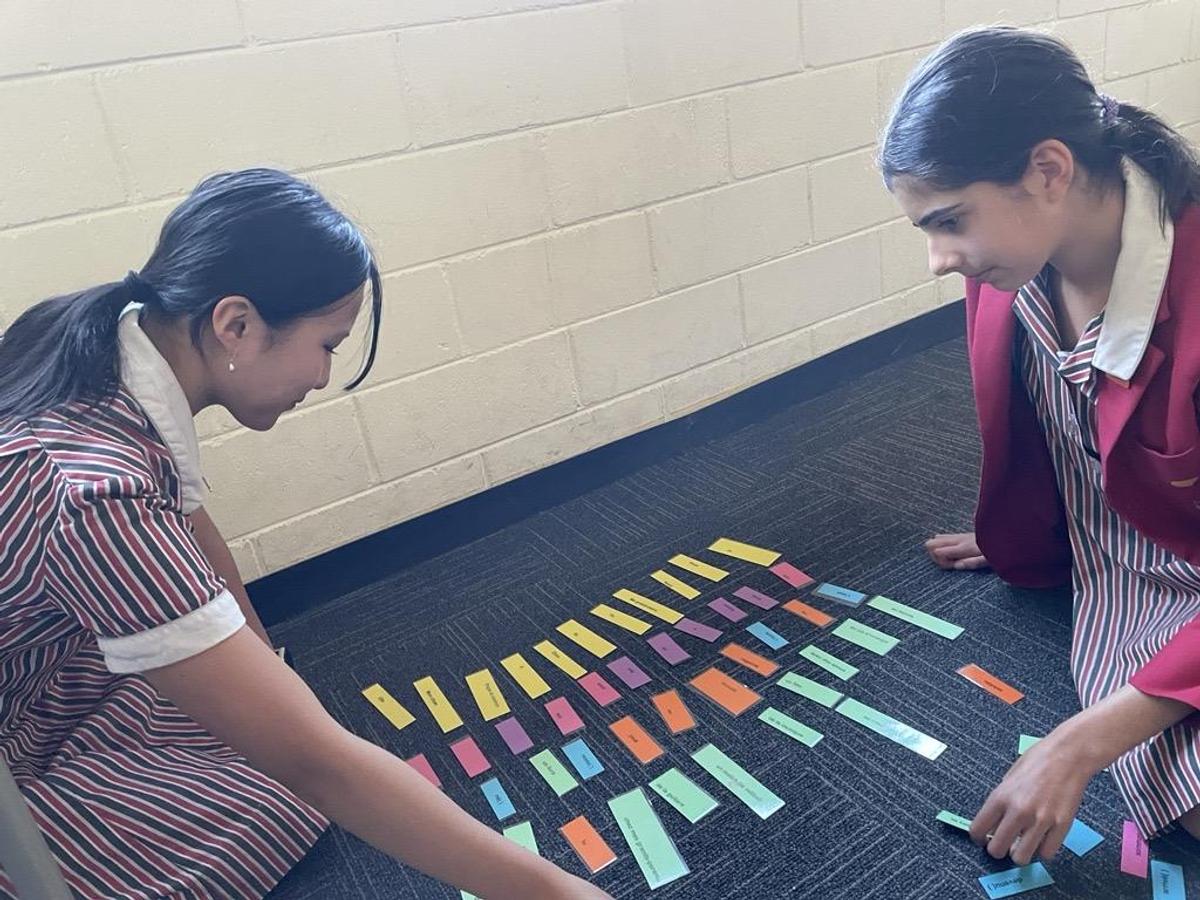

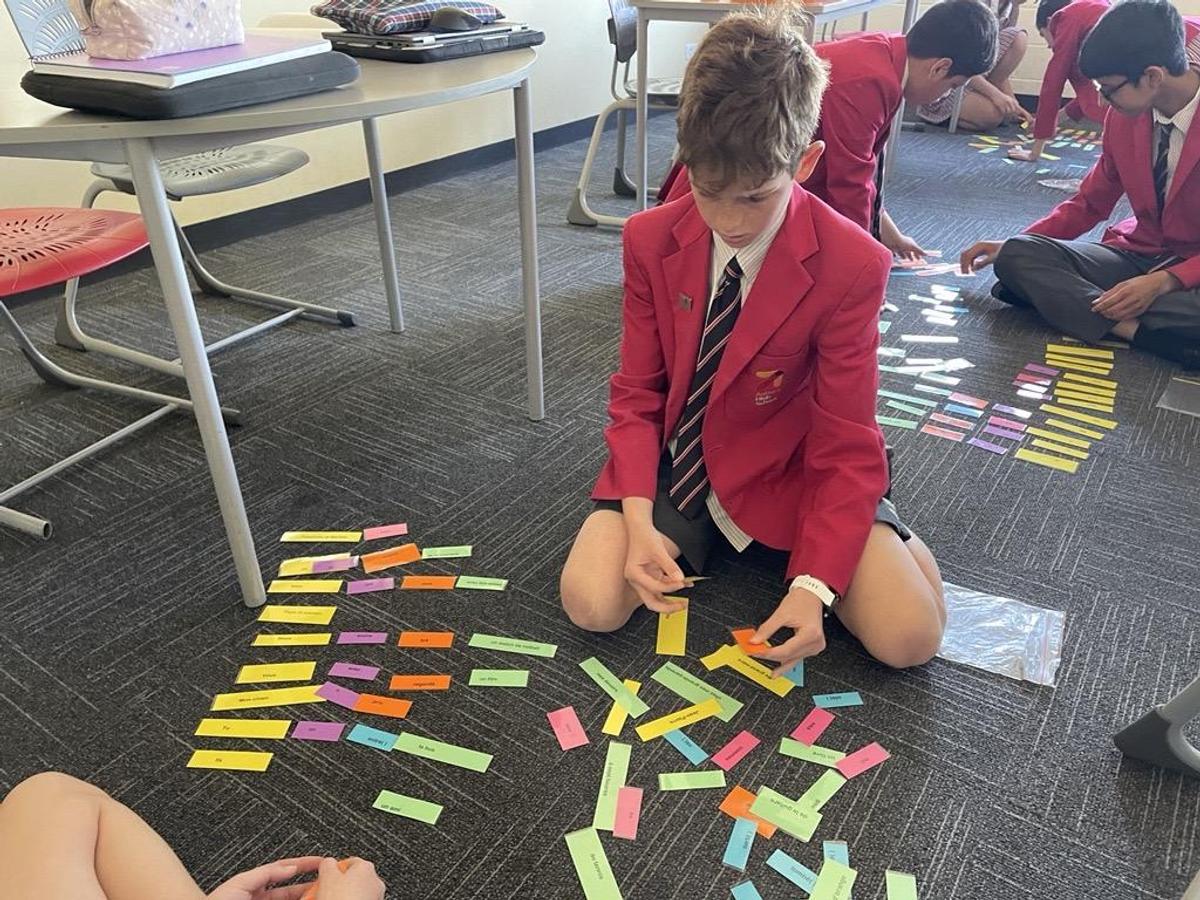

As part of their unit of work on Earth Sciences this term, students in Year 8 French Partial Immersion program have been looking more specifically about water resources and greenhouse effect. Here is a poster presenting the greenhouse effect in French:
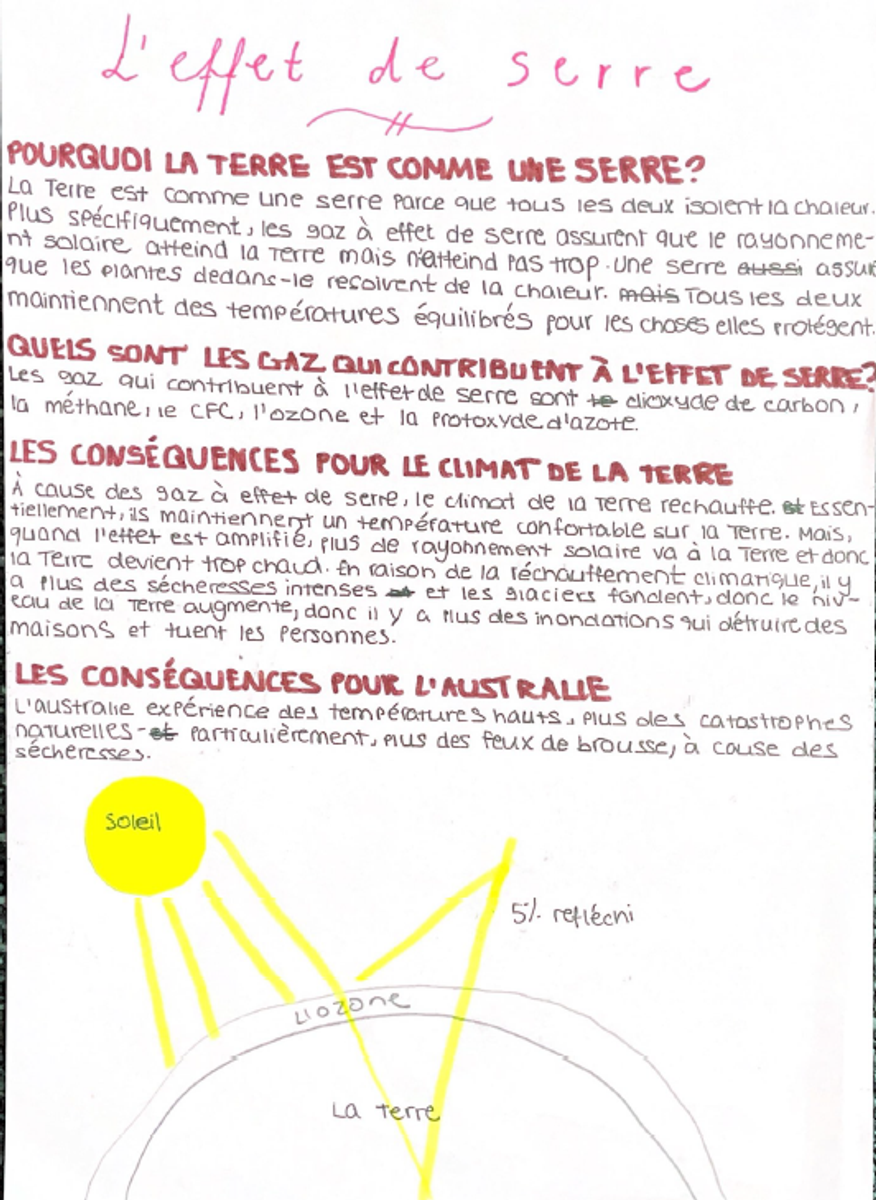

Students in Year 7, 8, 9, 10 are continuing to prepare for our first edition of the AHS French Conversation Competition! This competition will enable students to showcase their speaking skills and win great prizes! The competition will run during weeks 5 and 6 this term. Bonne chance à tous!
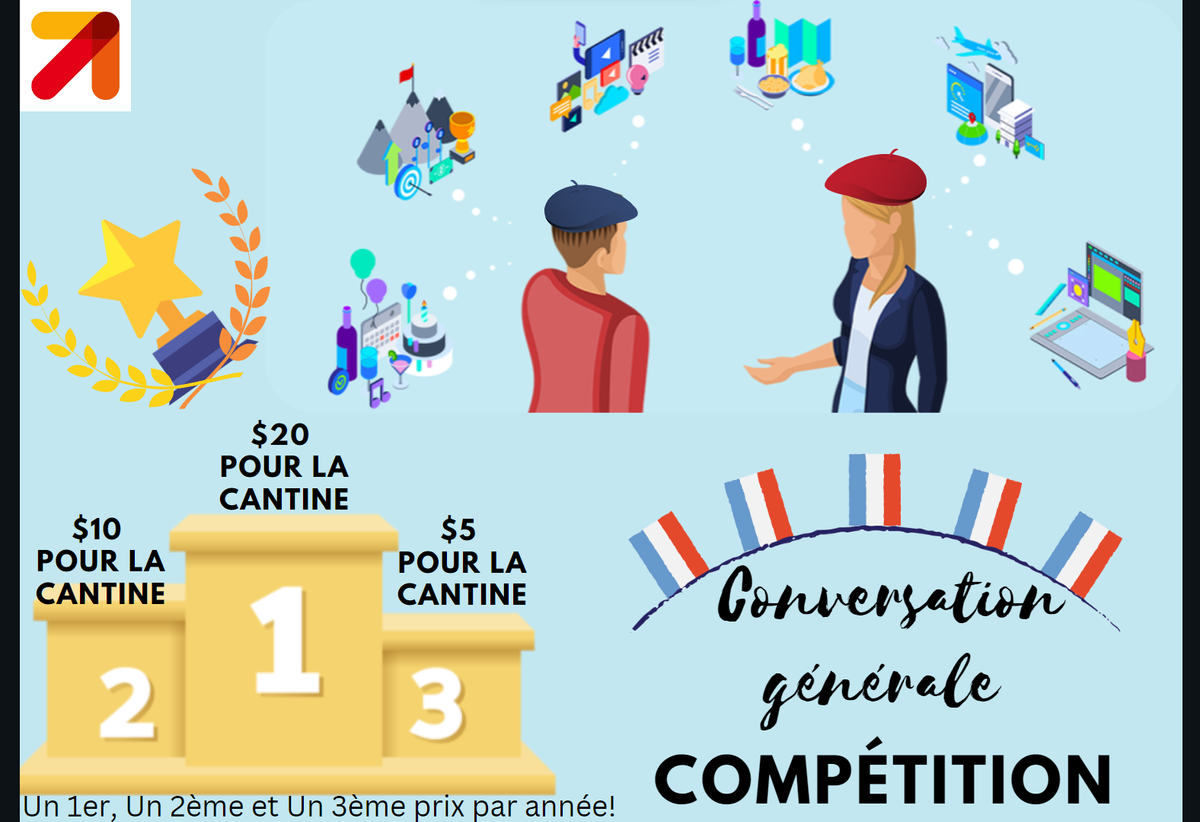

Fête de la Science - Alliance Française de Melbourne
Our Year 9 French Binational students as well as a couple of Year 8 Binational students and one Year 10 student were invited to take part in a special event organised by the Alliance Française de Melbourne to promote “la fête de la science”. They had the opportunity to listen to a range of very passionate scientific experts in their field, including: Oceanography, Wildfires, Floods, Dark Matter, Cancer Research, Hydrogen & Future Energies & Engineering/Radars. Thank you to the Alliance française for organising such a successful event combining French & Science!
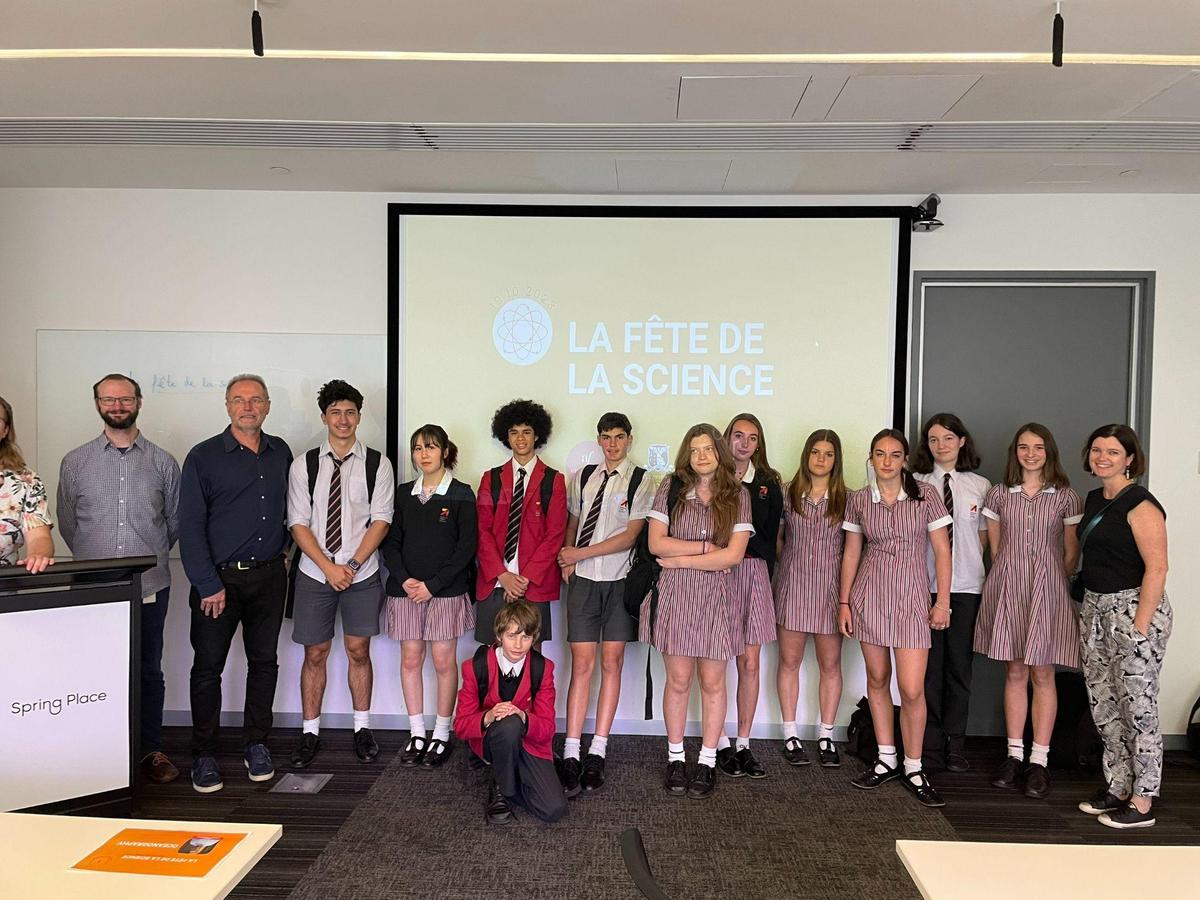

On Thursday, we got to join some older students on an excursion to the city for “La fete de la science” (science festival) organised by the Alliance Française in Melbourne. We got to hear from 7 scientists working in different fields, who gave us an insight on their work and possible career paths for us. Some things we learnt about included cancer research, dark matter and how radars work. We liked learning about current, real-world issues and what their day to day lives were like. We also enjoyed learning about how things worked, and the theory behind it, especially dark matter.
Aiko & Mia (8F)
Jeudi, nous avons eu la chance de rejoindre quelques élèves en sortie scolaire pour la Fête de la Science, un événement organisé par l’Alliance Française de Melbourne. Nous avons rencontré 7 scientifiques travaillant dans différents domaines qui nous ont parlé de leurs travaux et de potentiel métier pour notre avenir. Les 3 sujets qui nous ont le plus marqués sont des recherches sur le cancer, la matière noire et le fonctionnement des radars. Nous avons apprécié qu’ils nous fassent part de leurs projets actuels et des difficultés qu’ils rencontrent au quotidien. Nous avons aussi bien aimé découvrir le fonctionnement de leur travail, ainsi que la théorie qu’ils appliquent, particulièrement pour la matière noire.
Aiko & Mia (8F)
Le 19 octobre nous sommes allés à la fête de la science. Nous avons écouté des scientifiques, professeurs et étudiants parler de leurs champs de travail. On a parlé d’océanographie, d’inondations, de feux forestiers, de sciences politiques, de matière noire, de traitement des cancers et finalement de radars. Nous avons beaucoup appris sur beaucoup de sujets très variés, nous avons aussi pu leur poser beaucoup de questions. C’était très intéressant car chaque scientifique nous a donné ses expériences et ses témoignages.
Pia (9F)
On Thursday 19th October, our class had the opportunity to attend a gathering of French speaking students at the Alliance Française and gain insight from professionals on a diverse range of topics related to science. We got to learn on the ins and outs about dark matter, Cancer research, radars, forest fires and many more. What really piqued my interest was learning about dark matter and how they aim to detect the undetectable. They looked to replicate an experiment deep underground in two different locations, one in the northern and one in the southern hemisphere. This aimed to ensure that seasonal changes did not have an effect on their readings.
Mikael (9F)